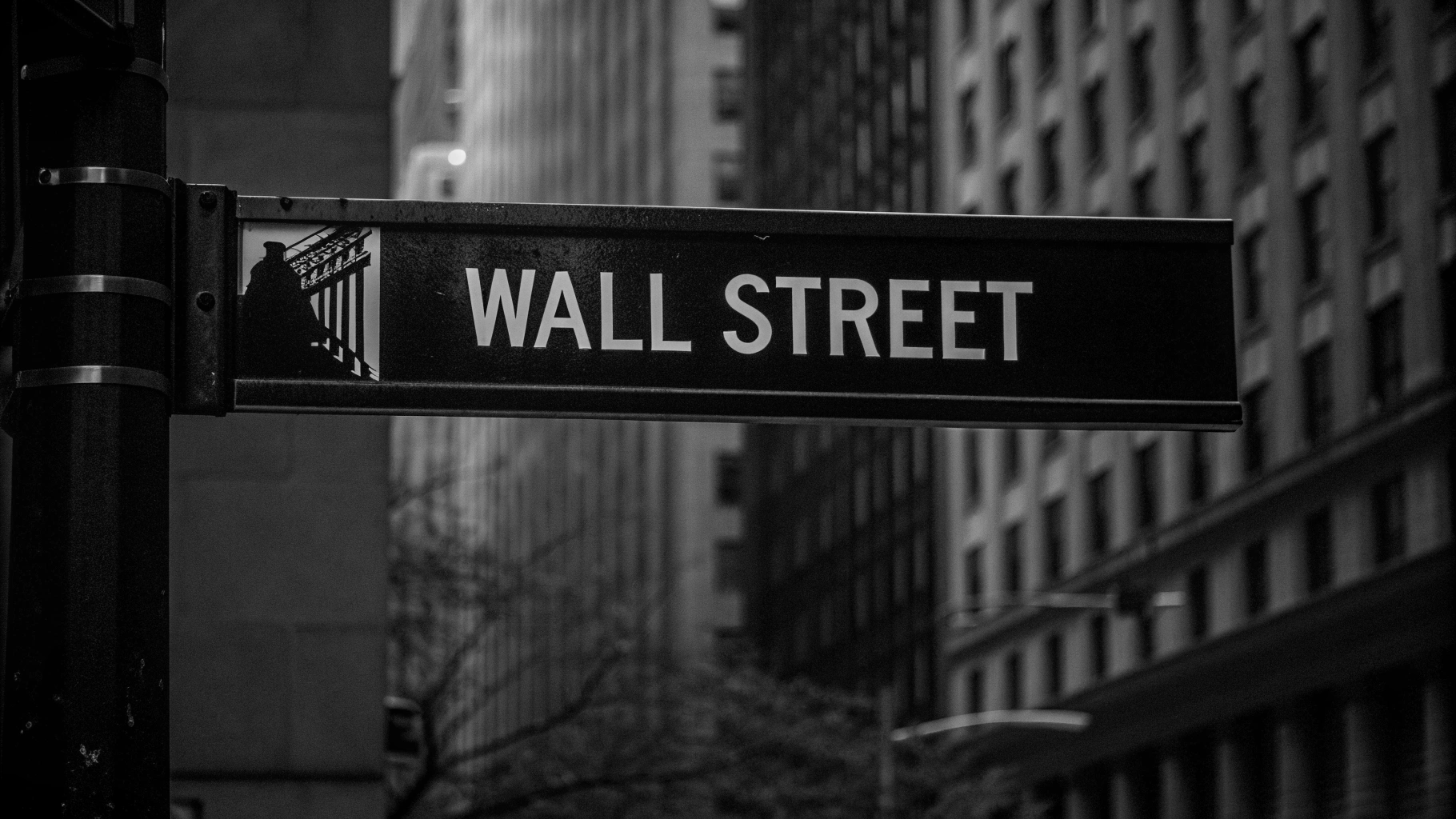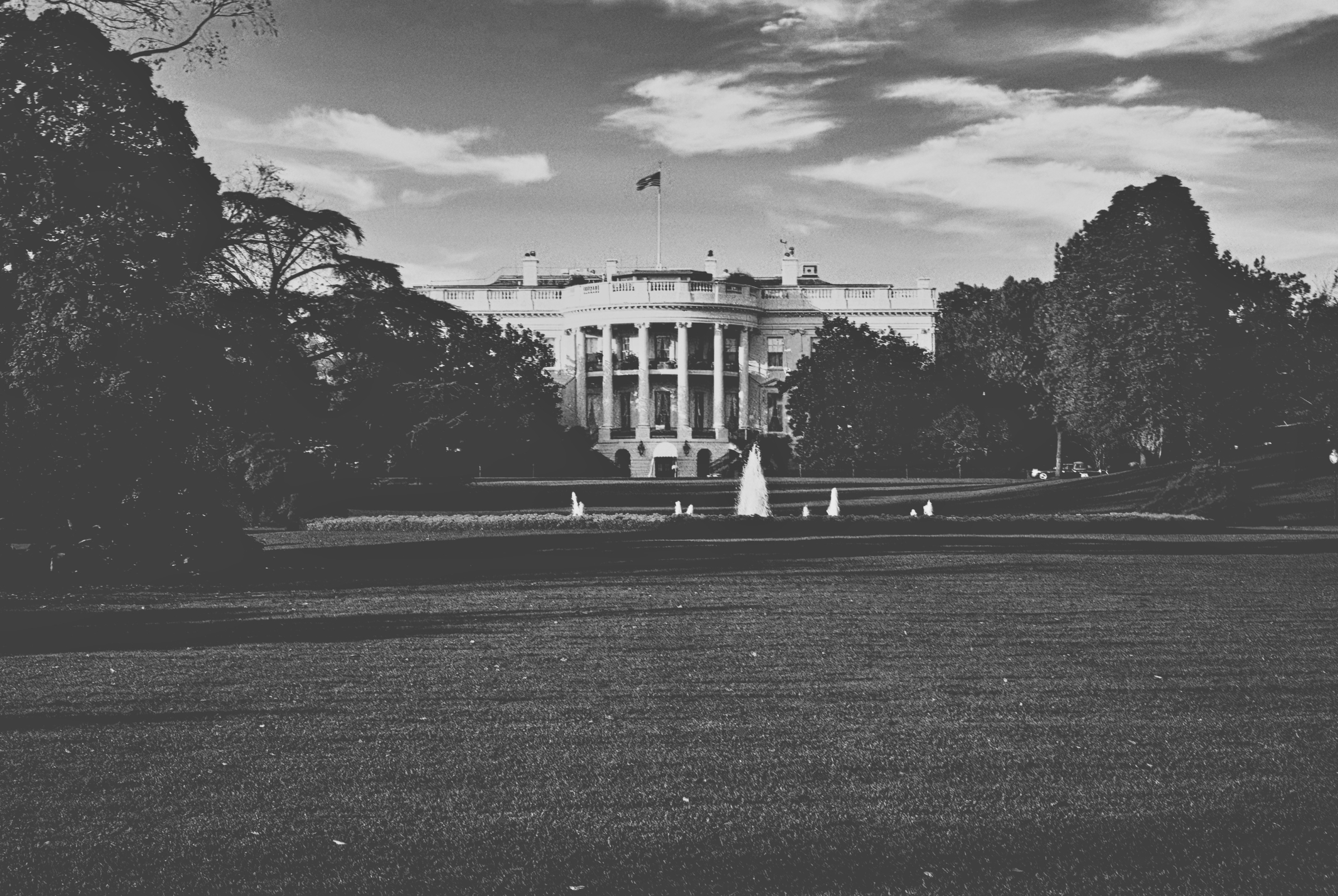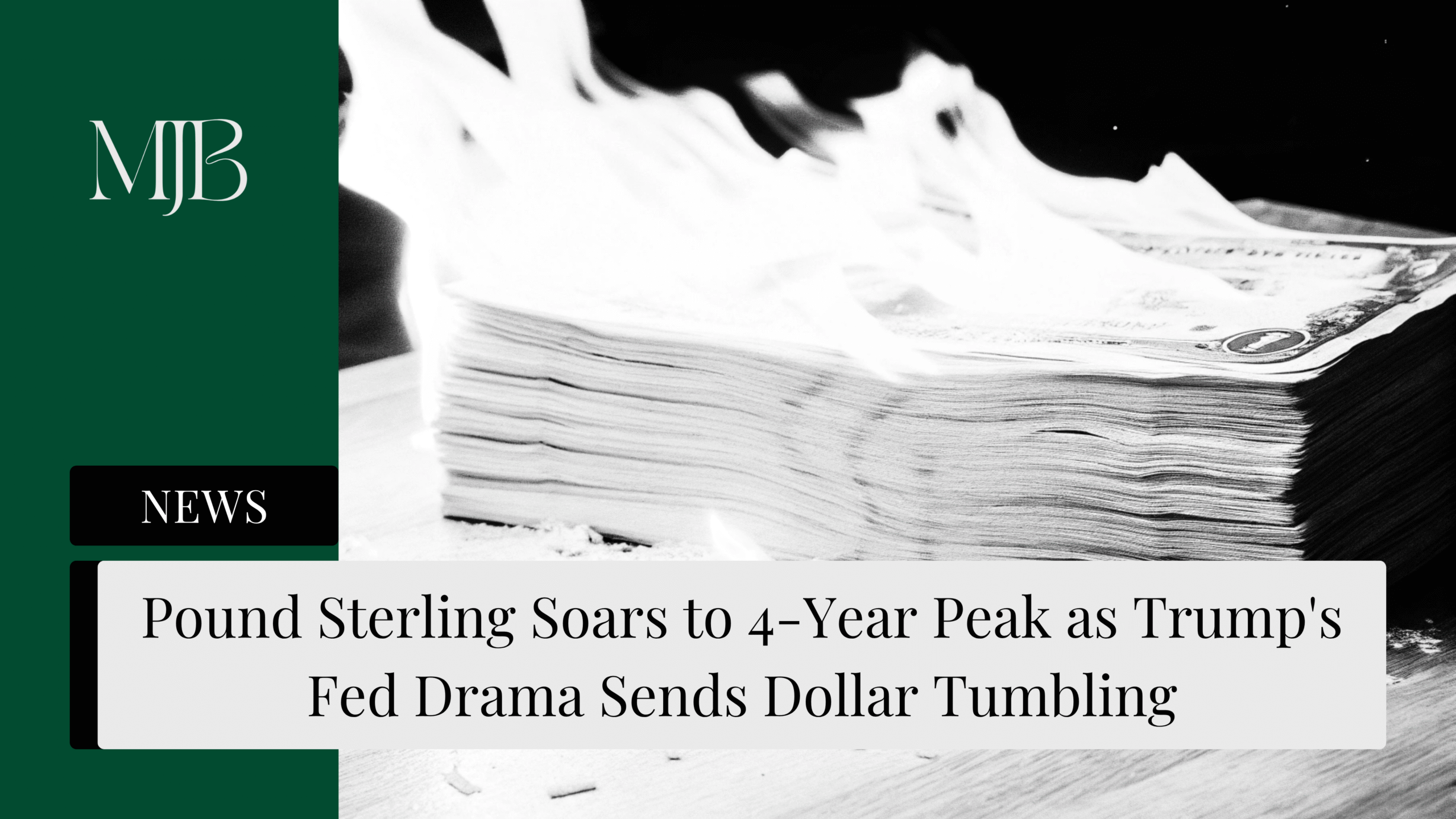Anyone had any friends that wouldn’t stop complaining about the weak pound, no? Me neither. But, if we did, they would probably be popping champagne right now. Sterling just rocketed above $1.37 — its strongest showing since October 2021 — and Trump’s latest Federal Reserve antics might be the unlikely hero of this currency tale.
Here’s what’s cooking in the forex markets, why the dollar’s having a mini meltdown, and what it means for your lovely wallet (spoiler: it depends which side of the Atlantic you’re on).
The Dollar’s Bad Day: What’s Behind Sterling’s Victory Lap?
So, what exactly lit a blaze under the pound sterling? Turns out, President Trump dropped a bombshell that sent currency traders scrambling. Which, let’s be honest, may not have surprised you.
According to the Wall Street Journal, Trump’s considering naming Jerome Powell’s replacement as Fed chair a whole 7-8 months early — by September or October instead of waiting until Powell’s term ends in May 2026. Power move.

Trump vs. Powell: The Grudge Match Nobody Asked For
Let’s set the stage: Trump called Powell “terrible” on Wednesday last week (ouch) and claimed he’s eyeing “three or four people” who could take the Fed’s top job. This isn’t your typical workplace drama because Sandra took the last biscuit — it’s a clash that could reshape America’s monetary policy and, by extension, global markets.
The Fed’s supposed to be independent (keyword: supposed), making decisions about interest rates without political interference or rather, bullying in this instance. But when the president starts publicly shopping for a new central bank chief while the current one’s still in office? That’s when traders start getting nervous.
Why Currency Traders Are Betting Against the Dollar
Kaspar Hense from RBC BlueBay Asset Management put it concisely: traders are betting the dollar will fall because there’s “an erosion of institutions.” Translation? When you mess with the Fed’s independence, you mess with market confidence.
Kit Juckes from Societe Generale echoed this sentiment, suggesting markets are pricing in Trump appointing someone “more sympathetic to his cause.” In finance-speak, that’s code for “someone who might cut rates when Trump wants them cut, inflation be damned.”
The Tariff Factor: Another Headache for the Dollar
As if the Fed drama wasn’t enough to stomach, Trump’s threatened tariffs are adding another layer of insecurity. These levies — currently paused until July 9 — have businesses racing to import goods before potential price hikes kick in. The result? The US economy actually shrank in Q1 2025 for the first time in three years.
JP Morgan’s still relatively optimistic, lowering recession odds, but at 40%, that’s still uncomfortably high. It’s like being told there’s a 40% chance of rain — you’re bringing your brolly.
Who’s in the Running to Replace Powell?
The rumour mill’s churning out names faster than Greggs does sausage rolls. Kevin Warsh, a former Fed governor, seems to be a frontrunner. When asked about Warsh, Trump said he’s “very highly thought of” — which as we’ve learned over the past 6 months, in Trump-speak is practically a job offer.
Treasury Secretary Scott Bessent’s name is also floating around, though he recently told Congress he has “the best job” in Washington. (Smart move, Scotty — never appear too eager.)

The Irony Alert: Powell Was Trump’s Pick
Funnily enough, Powell was actually Trump’s appointee back in the day, replacing Janet Yellen (who Trump criticised for keeping rates too low). Yellen went on to become Treasury Secretary under Biden and basically said Trump doesn’t understand macroeconomics (hmmmm…). The plot twists are just glorious!
What This Means for Your Money
If you’re holding dollars: This uncertainty isn’t the best of news. A weaker dollar means your purchasing power abroad takes a hit, and imported goods could get pricier.
If you’re holding pounds: Congratulations! Your money goes further when buying American goods or traveling to the US. That New York vacation just got a bit cheaper.
For investors (as we all should be): Currency volatility creates opportunities, but this move is not for the faint-hearted. Consider diversifying across currencies if you haven’t already.
The Bottom Line: Independence Matters (Who Knew?)
Academic research consistently shows that central bank independence is crucial for controlling inflation and maintaining market confidence. When that independence looks wavy, borrowing costs can rise for everyone — from governments to your neighbor refinancing their mortgage.
The pound hitting a 4-year high against the dollar isn’t just a number you see on your phone — it’s the market’s way of saying “we’re not comfortable with this pal.” Whether Trump follows through on his Fed shake-up plans remains to be seen, but one thing’s clear: currency markets are already moving with intent.
Ready to stay ahead of currency moves and Fed drama? Soon you’ll be able to subscribe to our newsletter with market updates and never miss a beat in the forex world. Because in today’s markets, what happens in Washington definitely doesn’t stay in Washington.
FAQ: Your Burning Questions About the Pound-Dollar Drama
Q1: Why does Fed independence matter so much to currency values?
Think of Fed independence like having a referee who can’t be bribed. When markets believe the Fed makes decisions based on economic data (not political pressure), they trust the dollar more. Shake that trust, and traders start looking for safer bets — like the pound.
Q2: Could the pound continue rising against the dollar?
It’s possible, especially if Trump escalates his Fed interference or if his tariff threats materialise. However, currency markets are notoriously unpredictable. The UK has its own economic challenges, so this rally might not last forever.
Q3: What happens if Trump actually replaces Powell early?
Technically, it’s complicated. The Fed chair serves a four-year term, and removing them early would likely face legal challenges. But even the attempt could spook markets, potentially weakening the dollar further and pushing up US borrowing costs.
Q4: How do Trump’s tariffs connect to the dollar’s weakness?
Tariffs can trigger inflation (businesses pass costs to consumers) and slow economic growth (as we saw in Q1 2025). This creates a tough spot for the Fed — fight inflation with higher rates or support growth with lower rates? This uncertainty makes the dollar less attractive to hold.
Q5: Should I exchange my dollars for pounds right now?
That’s the million-dollar (or should we say million-pound?) question. Currency timing is incredibly difficult, even for pros. If you need pounds for an upcoming trip or purchase, the current rate is attractive. But trying to profit from short-term currency moves? That’s basically gambling.
DISCLAIMER
Effective Date: 15th July 2025
The information provided on this website is for informational and educational purposes only and reflects the personal opinions of the author(s). It is not intended as financial, investment, tax, or legal advice.
We are not certified financial advisers. None of the content on this website constitutes a recommendation to buy, sell, or hold any financial product, asset, or service. You should not rely on any information provided here to make financial decisions.
We strongly recommend that you:
- Conduct your own research and due diligence
- Consult with a qualified financial adviser or professional before making any investment or financial decisions
While we strive to ensure that all information is accurate and up to date, we make no guarantees about the completeness, reliability, or suitability of any content on this site.
By using this website, you acknowledge and agree that we are not responsible for any financial loss, damage, or decisions made based on the content presented.

